What kind of defects commonly occur in home building projects in NSW?
Home building projects often result in defective and incomplete works upon completion. The most common of these is wall damage.

The table above shows that the most commonly-occuring defects in NSW, in order of frequency, are as follows:
- damage on the wall
- incomplete placement of roof
- incomplete work involving doors
- damaged doors
- uneven work for flooring
- damaged flooring
- messy work
What to do in case of defects
Your contract – whether it’s from the HIA (Housing Industry Association), MBA (Master Builders Association), or the Office of Fair Trading – have clauses that deal with Defects.
Read on to know how to navigate your contract and find the clauses you may refer to should you encounter Defects in the construction of your home.
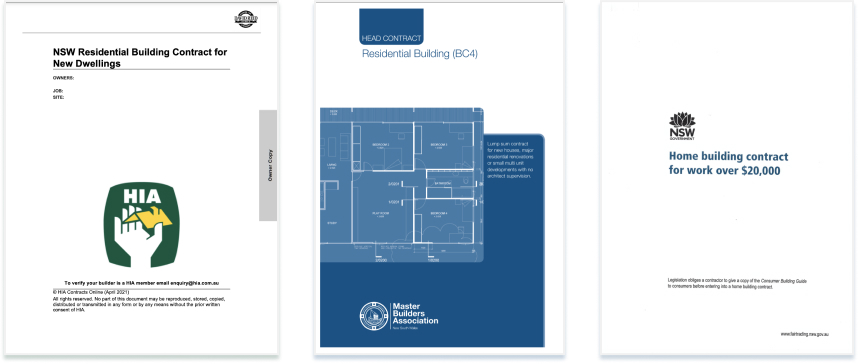
Clauses that deal with defects
Defects are usually defined within the Statutory Warranties, which you will find listed in your contract.

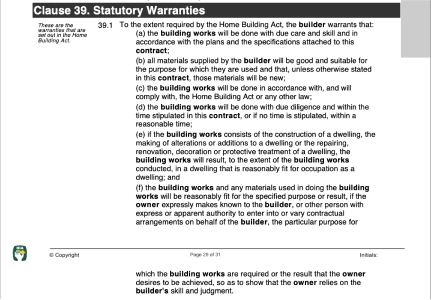

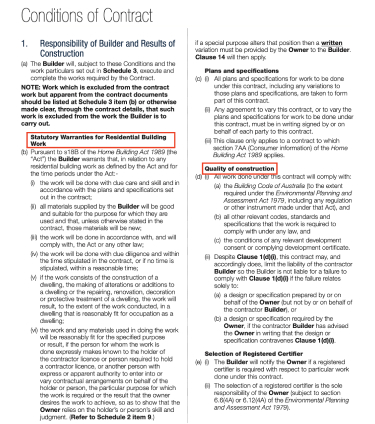

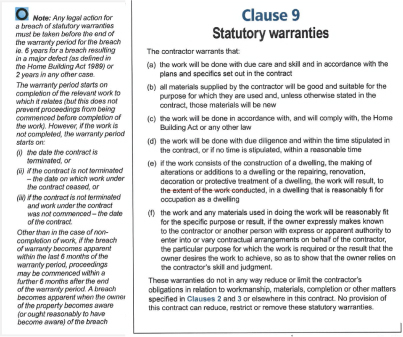
You should also look at pertinent dates: the commencement of works, building period, and practical completion.
The only time you’ll know if there is a building defect is after the handover of the property upon practical completion.
Note that practical completion is computed after the building period commences.
Here’s where to find them:



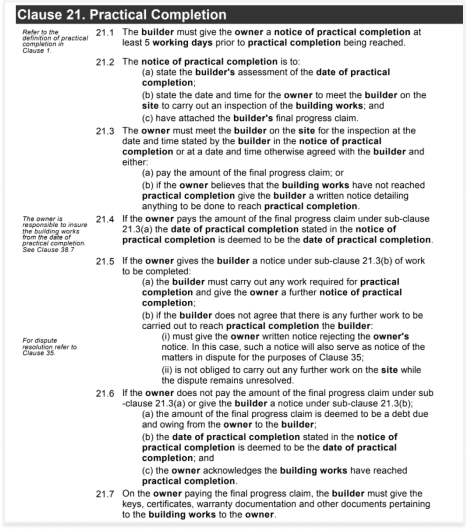

Schedule 2 Item 5(b) - Construction Period
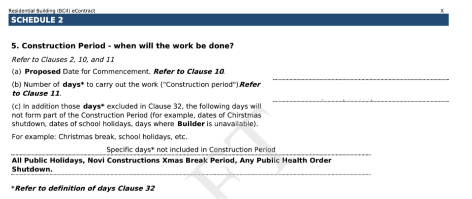
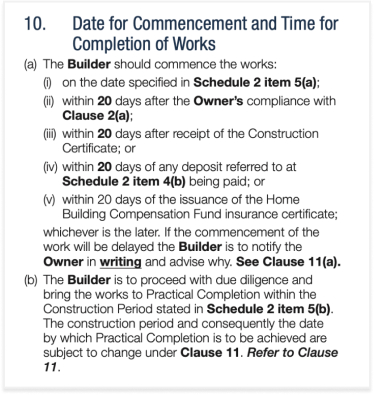
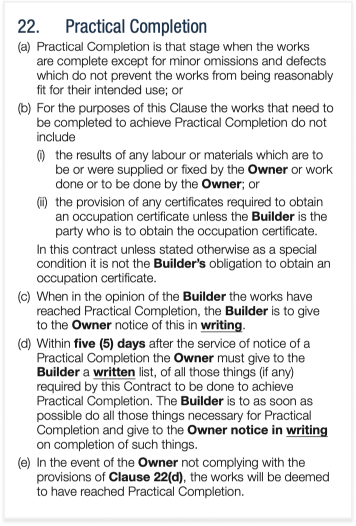

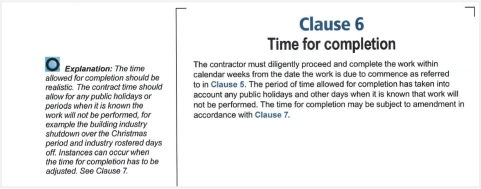
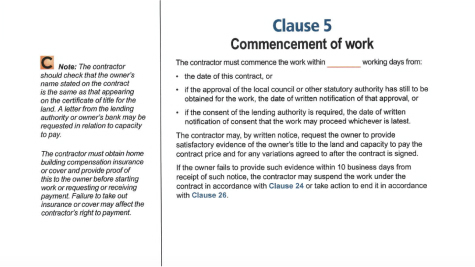
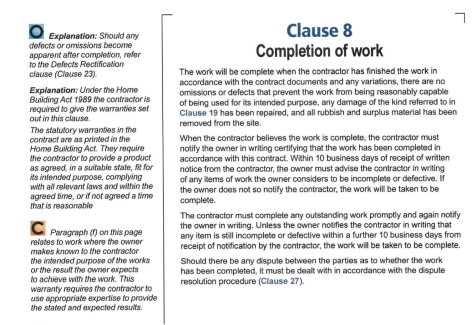
When defects become an actionable wrong
So, supposing the building works have reached the stage of practical completion. You now have the right to inspect the works and the premises.
What should you do if upon inspection of the premises after practical completion, you find that there are defects or incomplete works?
Generally, you send the Builder a list of defective and incomplete works, within what’s called the “Defects Liability Period.” This then obliges the Builder to rectify the defects in the notice. The details and timelines would depend on the contract you’re using.



Clause 24 Defects Liability Period
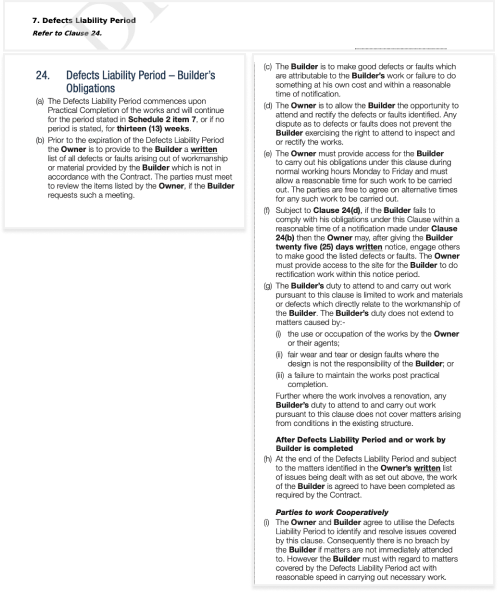

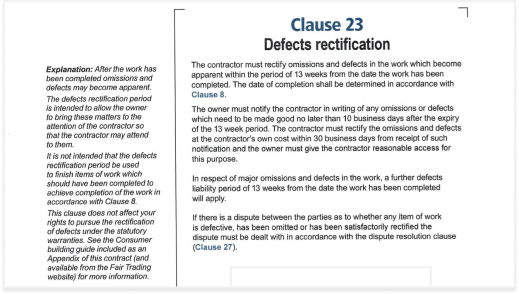
Dispute Resolution
What if the Builder refuses to rectify the defects?
If the Builder refuses to rectify the defects after you’ve given them notice to do so, you may resort to dispute resolution.
Usually, the procedure is as follows:
- Give written notice to the builder, setting out the matter in dispute. In this case, building defects.
- You and the builder must meet within a certain number of days, to attempt to resolve the dispute, or to agree on methods of doing so.
- If the dispute is resolved, you write down the resolution and sign it.
The finer details of the dispute resolution procedure depends on which contract you’re using.



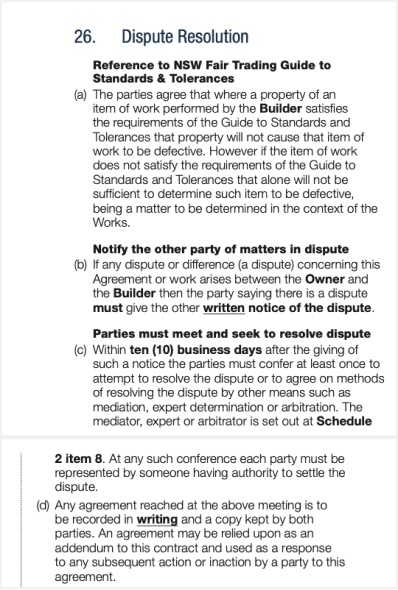

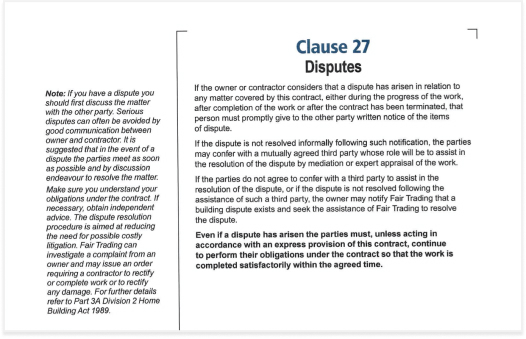
If the dispute remains unresolved despite undergoing Dispute Resolution
- If, despite attempting to settle the matter between yourselves, the dispute persists, you may opt to bring the matter to the Office of Fair Trading, where you and the builder may be instructed to undergo ADR (Alternative Dispute Resolution).
- If the dispute still remains unresolved after taking it to Fair Trading, you will be given a certification to lodge a complaint with NCAT, where the matter will undergo directions hearings. A final hearing may be had where the disposition of the tribunal will be made.
- If, after Fair Trading, the dispute is still unresolved, or if you are not satisfied with the tribunal’s decision, then you may file a complaint in court.
Resolve Your Building Defects Now
Submit Your Building Defect Details Here
Step 1: Simply fill out this form, provide details of your building defect, and upload relevant documents.
Step 2: We’ll review it and return to you with a free quote.
Get Expert Building Building Lawyer Services and Resolve your Home Building Defects Now.

How we can help
While the HIA and MBA contracts contain clauses on defects rectification, they are written to favor builders, as opposed to the Fair Trading contract, which is more objective. Hence, it may be a good idea to engage a specialist construction lawyer for Contract Review and Advice, so that you may be apprised of what your best course of action may be when faced with defective or incomplete works, whichever contract you’re using. Contracts Specialist has expert building and construction lawyers who can help with that.
Related Content :Getting Legal Advice for Building Defects




